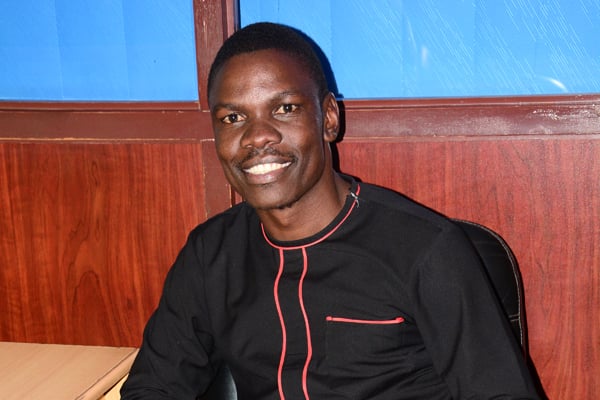Chevening alumni push for PWD-inclusive education

Mr Stephen Muhumuza speaks during a Chevening almuni roundtable at British Council offices in Kampala on February 23, 2022. PHOTO/ ISAAC KASAMANI
What you need to know:
- In 2020, the government enacted the Persons with Disability Act, 2020, to provide for respect and promotion of human rights for persons with disability.
The Ugandan alumni of the British government’s Chevening scholarship have launched a campaign for accelerated inclusive education, specifying affirmative action to increase youthful persons with disabilities’ access to quality education.
The drive includes the alumni leveraging by building synergies and collaborations between civil society, government agencies and other stakeholders, establishing a buy-in for inclusive education across government, and secure commitments for a signed ‘call to action’.
Other elements of the programme financed through Chevening Alumni Programme Fund (CAPF) include nudging for provision of assistive technologies for impaired learners, and supporting Kampala School for the Physically Handicapped with an adaptive technology resource centre.
During a roundtable on Wednesday at the British Council offices in Kampala, the assistant commissioner-in-charge of children with disability at the Education ministry, Ms Annet Baitwabusa, revealed that the government is finalising plans to revive assessment centres in all districts to improve inclusive education.
“The idea is to see that children who are admitted in any school can be assessed so that we can know which kind of disability they have to get better support. Some disabilities can be diagnosed right from conception, but because the [parents] are not told, they never get to know,” she said.
Uganda Bureau of Statistics in 2016 reported that about 2.5 million Ugandan children live with disability, and experts say only 14 percent of these can access proper education.
According to the Education ministry, the country has 45 assessment centres, although only one in Nakivubo in Kampala is operational.
During the Wednesday roundtable attended by Chevening alumni, including chairperson Helen Kaweesa, Ms Baitwabusa said they plan to hire instructors, install equipment once the assessment centres are established in districts.
“This is not an easy process and we are taking it seriously because there are gaps already. The parents need to know when their children have any form of disability,” she said.
In 2020, the government enacted the Persons with Disability Act, 2020, to provide for respect and promotion of human rights for persons with disability.
This followed numerous commitments by the government to respect the rights of persons with a disability using their Sustainable Development Goal four on the same.
However, many experts on Wednesday indicated that despite the intentions in legislations and policies, gaps still remain in implementation.
Many panellists pointed out loopholes in Uganda’s education system, which inhibit children living with disability from accessing and learning at different levels.
Ms Safia Nalule Juuko, the chief executive officer of the Equal Opportunity Commission, said most institutions do not have the experts to handle children with disabilities and this has excluded thousands from acquiring formal education.
“I want to use my experience. While a student at Makerere University, I missed writing a paper because the administration and caretakers didn’t mind my state. They usually looked at me, sympathised [with me], but [they] did not bring lasting solutions. That is the case in most schools till now,” she said.





